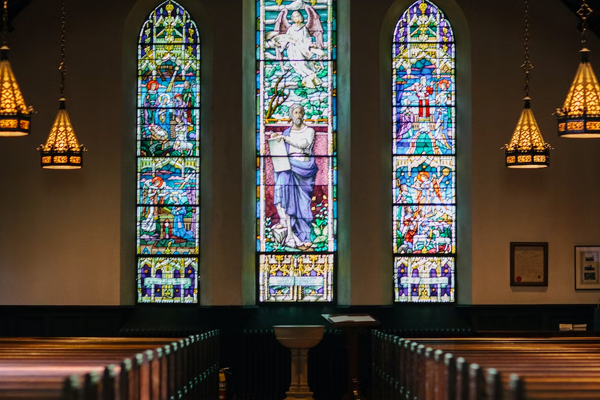A Montgomery County Circuit Court Judge recently dismissed a lawsuit brought by 45 Alabama Methodist churches seeking a vote to disaffiliate with the United Methodist Church (UMC) and retain church property amidst global turmoil within the denomination.
In her decision, Judge Brooke E. Reid gave a broad sentiment of support for the plaintiffs. However, she ultimately dismissed the case and the plaintiff’s request for a temporary restraining order on the grounds that the court did not have proper jurisdiction over the claim.
The case is one of many brought against the UMC recently after UMC’s Alabama West Florida Conference (AWF) changed the rules in its “Book of Discipline” in June, adding additional requirements for local congregations to vote to disaffiliate from the UMC while still retaining church property.
The rule change came after a mass exodus of UMC churches over a shifting view within UMC leadership related to homosexuality and homosexual clergy.
Traditional Methodists fought to establish the disaffiliation rule in 2019 to assist churches that refused to abide by the UMC’s official traditional stance on marriage and homosexuality to leave the denomination. However, traditional churches began to take advantage of the rule last year, fearing the growing progressive faction might try to change the Book of Discipline during next year’s General Conference.
After the rule change, several Alabama Methodist churches began the disaffiliation process, often expressing frustration at the gridlock created by the new rules’ arduous requirements.
The suit brought against the AWF by 45 Methodist churches in the state sought a temporary restraining order, allowing the congregations to officially vote on disaffiliation while retaining the rights to church property should the vote pass. It said the congregations may seek to depart from the UMC to “pursue their deeply held religious beliefs, some of which are at odds with the UMC’s current practice.” However, the suit did not specify which practices the plaintiffs objected to.
Like many brought against the UMC, the suit disputed UMC’s claim to control individual congregations’ property and assets due to the “Trust Clause” within the Book of Discipline, saying the UMC was “holding their church buildings and property hostage.”
In her decision, Reid said the court could not deliberate on the merits found within the Book of Discipline, which would require the court to deliberate on church doctrine. Reid also said she issued a swift ruling so the plaintiffs could bring their case to the Alabama Supreme Court on an “emergency basis.”
“To implement a rule upon which Plaintiff churches relied and subsequently modify the rule to bar from exercising a voting right seems at a minimum inequitable,” Reid wrote. “Plaintiff churches raise valid concerns regarding disparate treatment and the right of church denominations that have funded their own buildings, ministries, and staff salaries to separate from the UMC based upon sincerely held religious beliefs in conflict with church doctrine, policy and/or practice.”
For years, the United Methodist Church has been embroiled in controversy over denominational acceptance and ordination of LGBTQ+ clergy and same-sex marriage.
The UMC is currently undergoing a significant division as traditional churches are pursuing disaffiliation in light of a growing faction of progressive Methodists pressuring the church to change its Book of Discipline, which sets forth the law and doctrine for UMC churches.
To date, 51.9 % of North Alabama Conference churches have disaffiliated, and around 60% of parishioners have disaffiliated, with others following every month. In addition, according to the financial reports, 2023 giving is expected to be down over 45%, or around $3 million.
Since December 2022, over 500 Alabama churches have voted to disaffiliate from the UMC.
To connect with the author of this story or to comment, email craig.monger@1819news.com.
Don’t miss out! Subscribe to our newsletter and get our top stories every weekday morning.










